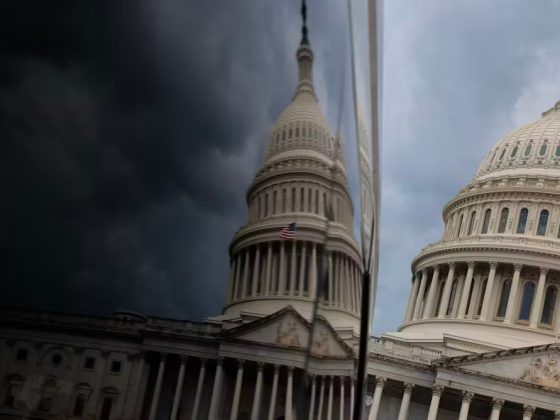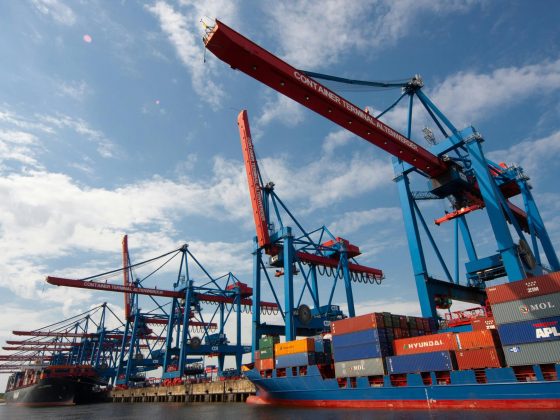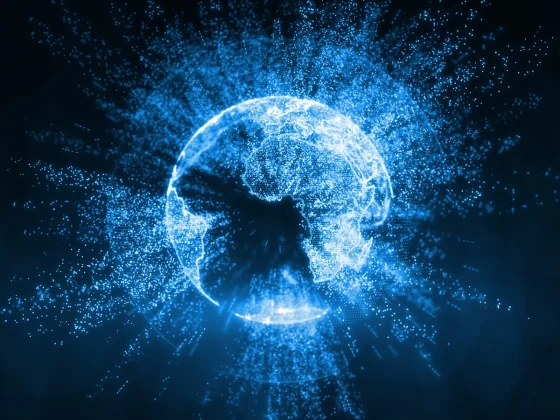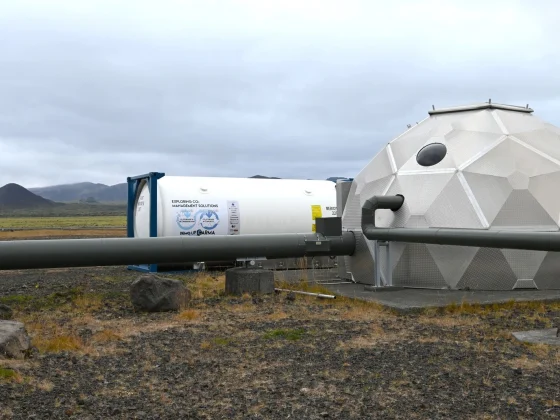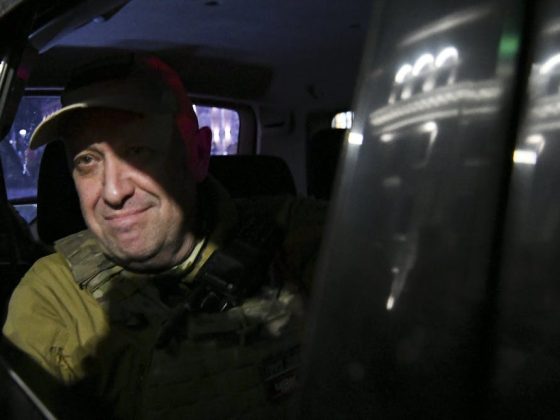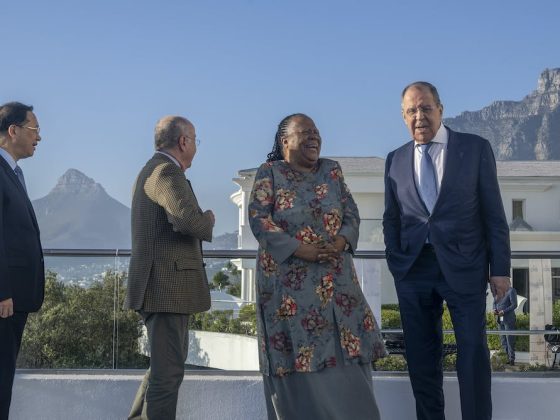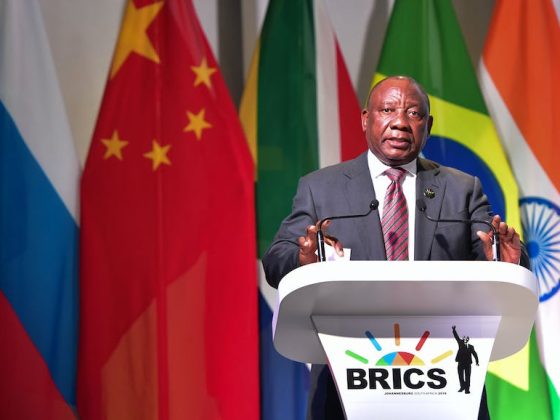Instead of peace through trade, we’re seeing increasing conflict. But states could still work together yet.
Seinfeld’ is back on Netflix, but those truly seeking to recapture the spirit of the 1990s should seek out ‘The Lexus and the Olive Tree’, the 1999 book by Thomas Friedman, one of the era’s superstar intellectuals. In a burst of liberal triumphalism, Friedman posited “the Golden Arches Theory of Conflict Prevention”. His observation was that “no two countries that both have McDonald’s have fought a war against each other since each got its McDonald’s”.
According to Friedman’s theory, once a state was rich enough to host a McDonald’s supply chain, it became a “McDonald’s country”. And “people in McDonald’s countries didn’t like to fight wars any more” – they preferred their consumer comforts.

Events of the 2020s make that seem laughable. In a new book, political scientist Mark Galeotti argues that the contemporary world is instead characterised by “the weaponisation of everything”. Subsea internet cables are protected from sabotage by underwater drones. Giant countries restrict package holidays to make tiny islands bend to their diplomatic will. Governments cut deals with heroin traffickers to circumvent blockades, while intelligence agencies set up dating websites to lure terrorists in search of a spouse.
What makes Galeotti’s argument stand out, particularly amid claims from some analysts that we are entering a period of ‘deglobalisation’, is its acknowledgement that there is no turning back from an interconnected world. Instead, the deepening of each connection increases the possibilities for weaponisation.
It is the vast expansion of global financial flows since the 1970s that has made financial sanctions such a potent weapon in the arsenal of the US, just as it is the rise in global migration in the 21st century that allows Turkey to use refugees as a bargaining chip against the EU. The huge increase in international law since World War Two permits ‘lawfare’, as tribunals become battlegrounds for territorial jockeying in the South China Sea.
Galeotti’s account is best seen as part of recent attempts to theorise what Mary Kaldor, professor of global governance at the London School of Economics, termed the “new wars’: “permanent low-level conflict, often unnoticed, undeclared and unending”, as Galeotti puts it. But while the new wars thesis neatly captures the gradual extinguishment of traditional notions of ‘peace’, it is premature in declaring the end of traditional notions of war.
This blindspot derives from over-reading the shift in warfare; Galeotti interprets the new wars as the result of a decline in inter-state conflict generally, but he is really describing the decline in direct military conflict between the so-called great powers, which is underpinned more than anything by the proliferation of nuclear weapons. Ukraine joins Georgia, Libya, Iraq, Afghanistan and numerous others in the list of non-nuclear powers that have faced ‘traditional’ forms of military intervention this century.
There is no turning back from an interconnected world. Instead, the deepening of each connection increases the possibilities for weaponisation
But war in Ukraine has also accelerated newer forms of weaponisation, too. It has supercharged the trend towards unilateral sanctions – economic sanctions issued outside the multilateral framework of the United Nations – precipitating financial conflict between the Western coalition and Russia, the world’s largest supplier of many essential commodities. Even supposedly ‘targeted’ sanctions have been shown to cause destructive inflation in the price of basic humanitarian goods.
A rollback of unilateral sanctions appears more remote than their extension. In October 2022, the US brought the once-unthinkable possibility of a ‘technological iron curtain’ between the world’s two largest economies a step closer by issuing sweeping restrictions on the export of semiconductor technologies to China. It was described as “an act of economic warfare“ by the Financial Times’ chief economics commentator, Martin Wolf.
In 2004, Wolf had written a Panglossian book titled ‘Why Globalisation Works’. Now he sounds like globalisation’s Jeremiah, regularly warning of impending calamities. The visionaries who once promised that a rising tide would lift all boats are now nervously frisking their life jackets.
Consequently, the multilateral institutions of the 20th century are decaying. The US now openly undermines the World Trade Organization, which once embodied American-led globalisation, even as the World Bank and IMF struggle to respond to a wave of global debt crises amid direct competition from China. The UN Security Council remains paralysed as its permanent members engage in proxy war and sanctions against one another, while even the World Health Organization is not immune from great power competition.
But the compounding error would be to submit to a pessimistic determinism about this future. Perhaps unsurprisingly for a grandee of the transatlantic think tank, security and consulting circuit, Galeotti wants to equip ‘us’ – conceptualised vaguely as Western democracies – to defend ourselves and respond in kind to weaponisation from ‘them’. China and Russia loom largest throughout the text.
In this worldview, China is an eternal foe threatening an imagined status quo of mutual cooperation in a “rules-based international order”. It precipitates an ominous future of “trade deals that… place less emphasis on environmental sustainability” and “security agreements that put more emphasis on national security than human rights”. A more sober analysis would acknowledge that the Western-led order failed to deliver such ideals in the first place.
The scale of universal challenges and the need for reciprocal cooperation has never been greater. Those shaping policy in powerful states must recognise that the shared work needed to address the climate crisis can provide mutually reinforcing benefits.
Such recognition would include an expansion of tentative moves towards multilateral efforts like ‘sustainability bonds’, issued by international development banks to fund vaccination efforts and global decarbonisation. It might also incorporate ideas from thinkers like Edoardo Saravalle and Nicholas Mulder on utilising ‘constructive’ rather than destructive forms of economic sanctions; funding alternative energy sources, food subsidies and mitigating disruptions to the supply of essential goods arising from geopolitical conflict.
On 16 May last year, as the brutal siege of Mariupol concluded in surrender by the Ukrainians, McDonald’s CEO Chris Kempczinski announced the company’s decision to exit Russia. His statement conveyed both the utopian nature of the globalised dream and the melancholy of its unravelling: “it is impossible to imagine the Golden Arches representing the same hope and promise that led us to enter the Russian market 32 years ago.”
Republished from openDemocracy

